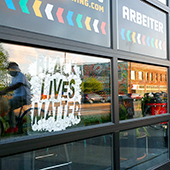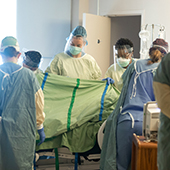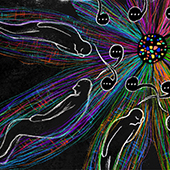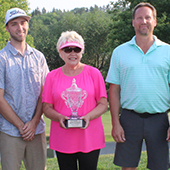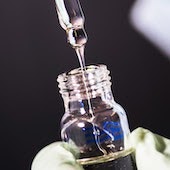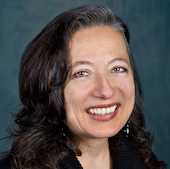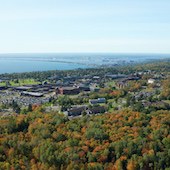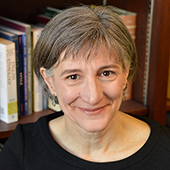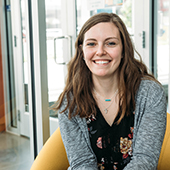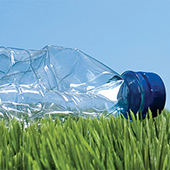Summer schedule: Brief will publish on Aug. 11 and 25. Weekly publication resumes Sept. 8.
- Entrepreneurship with a purpose.
- Features: Investing in Minnesota’s future—and titanium; Continuing the fight against COVID-19.
- Awards and Recognition: U of M researchers are part of a $10M grant aimed at creating novel processes to produce ammonia from intermittent renewable energy; and more.
Entrepreneurship with a purpose
The U of M encourages aspiring student and faculty entrepreneurs to pursue their startup passions. This feature highlights numerous businesses that have made a positive impact on society core to their mission, as well as some of the ways the U of M Twin Cities supports its entrepreneurship community. Businesses highlighted range from faculty-led BlueCube Bio, a cell therapy startup; to alumni-led Arbeiter Brewing and student startup Telo, which looked at roller walkers and said, ‘We can do better.” Explore these success stories.
Investing in Minnesota’s future—and titanium
Minnesota's Iron Range contains untapped titanium, one of the world's most important metals. Using a plasma reactor, Twin Cities College of Science & Engineering researchers have found a way to put this resource to use in a more efficient, sustainable way.
Continuing the fight against COVID-19
As parts of the world embrace a return to post-vaccination normalcy, a team of University of Minnesota Medical School researchers remain committed to thwarting COVID-19’s continued threat. The group is on the hunt for safe, widely used medications that may help stymie the virus’s worst effects. One option may be metformin, a drug used to treat diabetes.
Awards and Recognition
U of M researchers are part of a $10M DOE grant aimed at developing and demonstrating novel processes to produce ammonia from intermittent renewable energy; the Environment and Natural Resources Trust Fund recently awarded $5 million to the Minnesota Invasive Terrestrial Pests and Plants Center, as well as $3.75 million to the Minnesota Aquatic Invasive Species Research Center; Saida Abdi and Mimi Choy-Brown have been awarded a $1.99 million grant from the Substance Abuse and Mental Health Services Administration; a team led by Dorothy Hatsukami and Irina Stepanov has been named a global finalist for the Cancer Grand Challenges Multinational Consortium on Electronic Nicotine Delivery Systems; Ann Masten has received the 2022 Mentor Award in Developmental Psychology from the American Psychological Association; Susan Wolf has been named to serve on the newly created Strategic Council for Research Excellence, Integrity, and Trust; Sri Zaheer is the 2021 Career Achievement honoree for the annual Women in Business awards from the Minneapolis-St. Paul Business Journal; Campus Compact has selected 22 community-engaged scholars from across the country, including three U of M faculty; U in the News features highlights of U faculty and staff cited in the media. Awards and Recognition
Return to campus: Tech pointers webpage now available
A new technology pointers webpage provides useful resources to help you start using technology on campus again. It’s a great resource to help address some frequently encountered technical issues on your own. Technology Help is also available to assist with technology-related issues. Due to an expected increase in demand, there may be longer response and service delivery times during this transition.
Call for nominations: McKnight and Distinguished Teaching Awards
Nomination materials are now available for four systemwide faculty awards: The McKnight Land-Grant Professorship (due Nov. 9); the Distinguished McKnight University Professorship (due Jan. 25); the Horace T. Morse-University of Minnesota Alumni Association Award for Outstanding Contributions to Undergraduate Education (due Jan. 5); and the Award for Outstanding Contributions to Graduate and Professional Education (due Jan. 5).
Call for applications: OACA Faculty Research Development Grant Program
The Office of Academic Clinical Affairs (OACA) is soliciting applications for faculty research development grants that will support new or expanding interdisciplinary research that addresses significant clinical issues, is innovative, and has a high potential for return on investment. Applications can encompass a continuum from laboratory research to community-engaged/community-based research. The competitive LOI deadline is Aug. 27.
New NRRI report outlines Minnesota's potential for energy storage
Moving away from fossil fuels toward renewable energy comes with challenges. The Natural Resources Research Institute (NRRI) has researched a number of high-capacity energy storage opportunities that are on the horizon.
Study identifies racial/ethnic and language inequities in ways patients obtain COVID-19 virus testing
A University of Minnesota study is among the first to examine how different socio-demographic groups used telehealth, outpatient, emergency department, and inpatient care to test for SARS-CoV-2, the virus that causes COVID-19.
Role of host genetics on gut microbiome is near-universal, but environmentally dependent
Taken together, the bacteria, viruses, fungi, and other microbes that live in our intestines form the gut microbiome, which plays a key role in the health of people and animals. In new research from the University of Minnesota, University of Notre Dame, and Duke University, scientists found that host genetics nearly always plays a role in the composition of the gut microbiome of wild baboons.
Study highlights socioeconomic, racial differences in the financing of medical education
National data analyzed by University of Minnesota Medical School researchers show that nearly 40 percent of all funds used to pay for medical school are expected to come from family or personal sources and scholarships. The prevalence of these sources, however, varies widely by race and socioeconomic status.
Minnesota Futures Award supports ‘Creative Camp’ research for adolescent mental health
Studies have shown that creative activities like writing, drawing, or knitting can help reduce depression, stress, and anxiety, but scientists aren’t yet certain how creative thinking might help individuals shift out of negative thought patterns and into more flexible states of mind. Kathryn Cullen, head of the Division of Child and Adolescent Psychiatry, along with a team of faculty and staff from across the University of Minnesota System, is investigating how creative therapies might help adolescents experiencing depression.
Research Brief: New tool helps farmers make crop input decisions
A new tool developed by a College of Food, Agricultural and Natural Resource Sciences research team allows farmers to create a budget balance sheet of any nitrogen reduction plans and see the economic and environmental cost, as well as return and margins. Additional recent Research Briefs include “New study provides clues to decades-old mystery about cell movement”; “Health care providers missing opportunities to talk about sexual health with young people”; “Household cats are more susceptible to coronavirus infection than dogs in early-pandemic Minnesota”; and “Wetland restoration offers best protection against agricultural run-off.”
Aug. 18 - Retiree recognition
U of M Crookston and the Northwest Research and Outreach Center will honor 35 faculty and staff who have departed the campus just prior to and during the COVID-19 pandemic. “These colleagues worked hard for the University of Minnesota for many years, and we would like to express to them the gratitude we feel for all the help, support, and leadership," says Chancellor Mary Holz-Clause.
UMC Teambackers host successful golf classic
UMC Teambackers held its 31st annual Teambackers Golf Classic on July 16. The event raised money for athletic scholarships at U of M Crookston. UMC Teambackers raised more than $5,500 through the raffle and over $11,000 from the golf tournament.
Jurgens helps lead cancer care in Greater Minnesota
Don Jurgens ‘02 is a medical oncologist in St. Cloud. In addition to providing clinical care, he devotes daily time to researching new treatments. “Treatments have come a long way since I was a medical student, and it is very exciting to be a part of those changes in real time. Sharing that knowledge through treatment programs is incredibly rewarding," Jurgens says.
Shaping lives and empowering the community
Students in a new Master of Professional Studies degree at UMD will pursue individual interests and passions as they develop multi-disciplinary approaches to chosen problems. “This is a program that provides intellectual stimulation, opportunities to advance in a career, and even provides an opportunity to move into another career,” says professor Mitra Emad.
UMD named safest campus in Minnesota
Yourlocalsecurity.com has named the University of Minnesota Duluth the safest campus in Minnesota. UMD was evaluated based on the number of violent crimes, property crimes, hate crimes, and violent crimes against women per 10,000 people. The ranking was made using data from the U.S. Department of Education’s Campus Safety and Security and the FBI’s Uniform Crime Report. Learn more about the study.
Local Foods, Local Places project
Student Lily Sugimura ’22 and Argie Manolis, director of the Clifford J. Benson Center for Community Partnerships Center for Small Towns, were recently featured in a MinnPost article about this summer's Local Foods, Local Places project in Pelican Rapids.
Schrunk Ericksen named U of M Morris acting chancellor
Janet Schrunk Ericksen has been named acting chancellor for the Morris campus. Ericksen has most recently served as vice chancellor for academic affairs and dean for the Morris campus. She assumed the role of acting chancellor on July 1, following Chancellor Michelle Behr’s retirement.
Green chemistry track now offered at Morris
The University of Minnesota Morris’s commitment to provide a renewable, sustainable education continues to expand with a new green and sustainable track for chemistry majors. Like the recently added sustainability leadership minor, the green and sustainable chemistry major adds another opportunity for students to dive in and dig deep in sustainability.
UMR grad's health care journey comes full circle
Augusta Casterton was eight years old when she came to Rochester for the first time, as a patient inside Mayo Clinic’s cardiac department. She had complained of chest pains, and the regional clinic in her hometown of Decorah, Iowa couldn’t do the necessary imaging to figure out the problem. After running an echocardiogram, Mayo doctors diagnosed her with a leaky heart valve. Today, Casterton is a member of the U of M Rochester’s class of 2021 and has started her post-grad life as a cardiac sonographer at Mayo Clinic.
Healing brains, saving lives
Neurotrauma researcher and neurosurgeon Uzma Samadani has been studying and treating brain injuries for the past 20 years. The associate professor in the University of Minnesota Rochester’s Department of Bioinformatics and Computational Biology and member of the U of M’s Graduate Program in Neuroscience team considers them “quite possibly the single greatest contributor to impaired mental health in our society.” Brain injuries are also a leading cause of death among people ages 35 and younger in the United States.
Welcome Week volunteers needed
Faculty and staff volunteers are needed to assist with Welcome Week 2021. Opportunities include helping with Residence Hall Move-In (Aug. 30-31), New Student Convocation (Sept. 2), Welcome Tent Staffing (Aug. 30-31, Sept. 7-10), and more. Welcome Week is designed to welcome new students to campus and to prepare them for the start of their academic careers. Individuals and/or teams can sign up to volunteer.
Recycling mixed plastics is about to get a lot easier
The United States produced an average of 35.7 million tons of plastic in 2018. According to the Environmental Protection Agency, only about 9 percent of those plastics were actually recycled. University of Minnesota researchers have invented a polymer technology that enables two of the most common types of plastic to be recycled together, eliminating the need for recycling facilities to sort them.
Improving sexual health care practices around the world
School of Public Health researchers recently launched a collaboration to train healthcare students in socially conservative Tanzania on the best practices for sexual health concerns. Tanzania has some of the highest rates of HIV, sexually transmitted infections, sexual violence, and early pregnancy in the world.
Glowing plants might light the way to increased food security
Researchers at the College of Biological Sciences are developing a system using luciferin, a light- emitting compound, to cause plants to glow. The team hopes that the system can be used as a way for plants to “talk” to insects using lights to increase pollination of important crops.
Collecting materials about the U of M’s response to COVID a 'critical' role for U of M Archives
Collecting materials about the University’s response to COVID is not only important, “it’s critical,” says Professor Michael Osterholm, director of the Center for Infectious Disease Research and Policy. University Archivist Erik Moore says the U Libraries’ COVID-19 web archives are incredibly robust and detailed. And, according to Moore, the Internet Archive (a digital library) considers the U of M’s archive to be the first COVID-specific web collection created by a university in North America.
